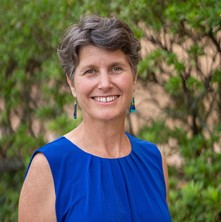NESS SEMINAR
Dr Nina Lansbury
Date: Wednesday 20th September 2023
Time: 12 – 1pm
Location: Online via zoom
“There is limited recognition regarding First Nation peoples other than relegating us to ‘vulnerable communities’ in the context of climate change. This disregards our over-65,000 years of sustainable practices and customary knowledge of the natural environment and thus our significant contribution to policy. First Nations need a voice” (Aboriginal respondent, IPCC Voices survey, 2023).
Aboriginal and Torres Strait Islander Peoples have lived in Australia for thousands of generations and through changes in the climate. Knowledges of how to manage Country (traditional estate) to ensure ecosystem health, food sources, and sustainability of Peoples through these changes have been passed down through Traditional methods. Much of these Indigenous Knowledges provide insights on how to adapt to the changes occurring now and projected into the future under the more rapid and human-induced climate change. However, until the most recent IPCC Assessment Report (AR6; IPCC, 2022), minimal inclusion of Indigenous data had occurred. In response, this research was commissioned by the Australian Government ahead of the IPCC Assessment Report 7 planning discussions in August 2023, to ensure Aboriginal and Torres Strait Islander Knowledges and perspectives are directly presented by First Nations scholars and Knowledge holders themselves. To guide the approach, a research team was formed comprising Aboriginal and Torres Strait Islander scholars, IPCC Lead Authors, and researchers with skills in cultural competency. Adjunct Professor Sandra Creamer AM (Waanyi Kalkadoon, The University of Queensland), Dr Vinnitta Mosby (Meriam Nation, Torres Strait, James Cook University), Associate Professor Brad Moggridge (Kamilaroi, University of Canberra) and Lillian Ireland (Melukerdee, legal scholar) are Aboriginal and Torres Strait Islander scholars who bring cultural Knowledges and diverse Country representation to this group. Dr Nina Lansbury (non-Indigenous, The University of Queensland) and Professor Gretta Pecl (non-Indigenous, University of Tasmania) are AR6 Lead Authors who worked alongside the Aboriginal and Torres Strait Islander team.
Dr Nina Lansbury is a research and teaching academic at The University of Queensland’s School of Public Health. Her current research at UQ examines health aspects for remote Indigenous community residents on both mainland Australia and in the Torres Strait in terms of housing, water and sewerage, and women’s health. She is also investigating the impacts of climate change on human health, and this involves a role as lead author on the Intergovernmental Panel on Climate Change (WG II, AR6).



